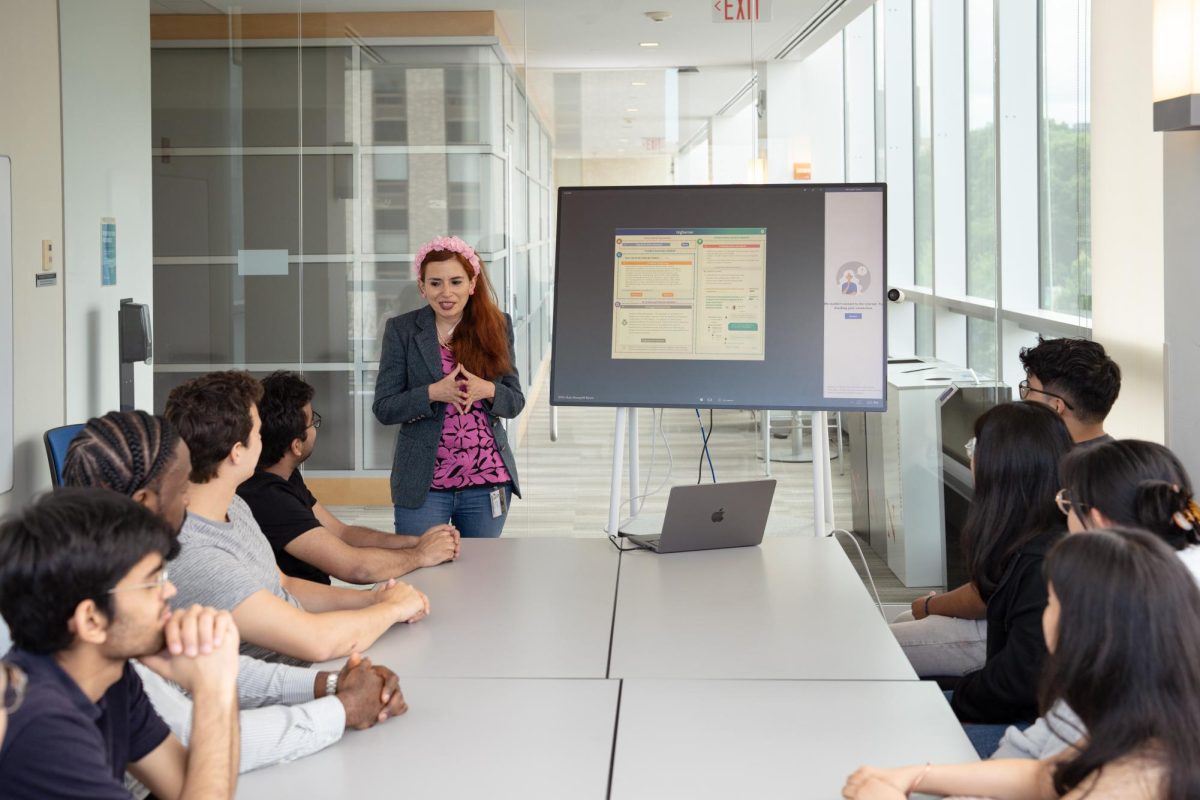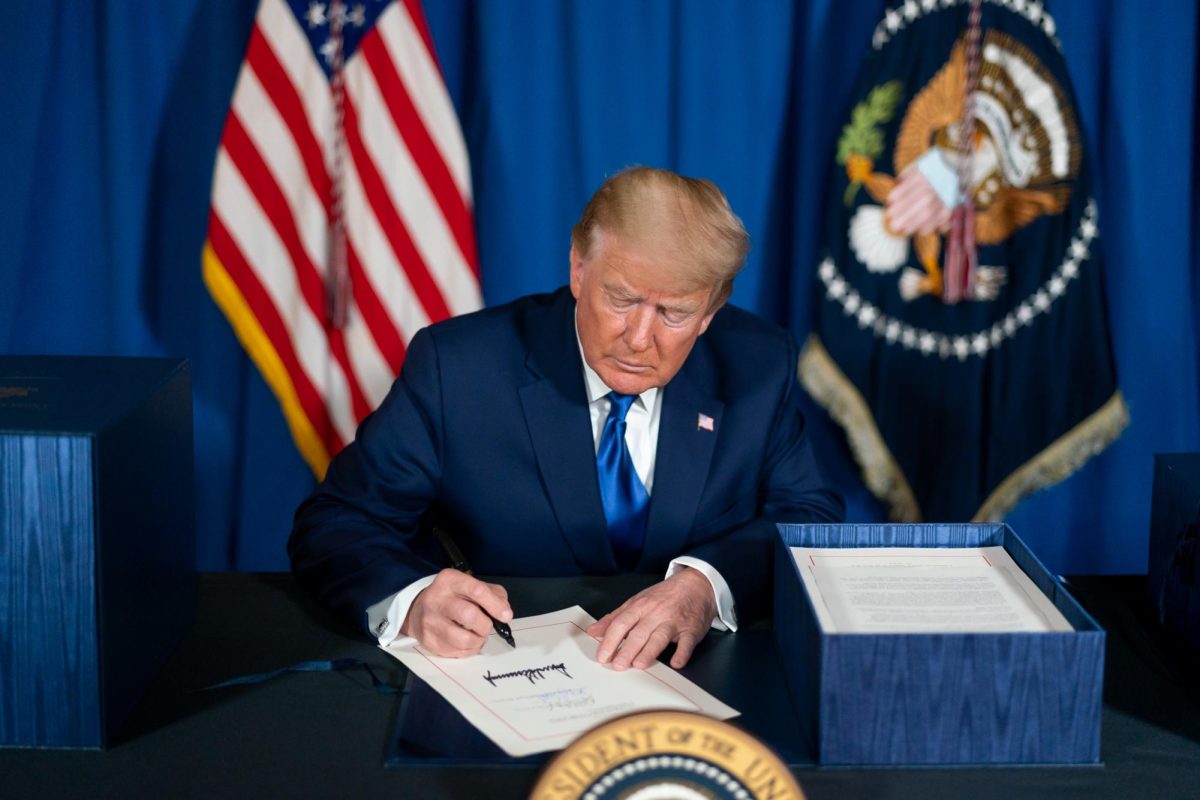By Todd Feathers, News Staff

Photo/Northeastern
The Massachusetts Commission Against Discrimination (MCAD) will begin investigating the suspension of Northeastern psychology professor James Scorzelli, after he filed a suit with the commission alleging that the university was punishing him in retaliation for past disagreements.
On Nov. 5, Scorzelli was suspended from teaching after a student reported in a TRACE evaluation that he told a class about a former patient of his whom he failed to report for sexual abuse, a letter to Scorzelli from Terry Fulmer, dean of the Bouve College of Health Sciences, said. Scorzelli claims that the incident the student reported was actually a hypothetical situation he presented to the class, and that the university is using the poor evaluation to ruin his reputation and force him to retire.
“I informed the dean that the student’s recollection was false and that I posed a hypothetical and asked the class to discuss how they would handle the situation, noting that legally, they were required to report the incident,” Scorzelli wrote in the suit he filed with the MCAD. “I believe I have been retaliated against by [Northeastern] for filing a previous discrimination complaint.”
University officials declined to comment on the specifics of the case and said answers to questions of university policy could be found in the Faculty Handbook.
Scorzelli said he told his Summer II Substance Abuse and Treatment class to “pretend” that the daughter of an alcoholic patient informed them that her father had forced her to touch his penis when he was drunk, but the father had no recollection of the event afterward. In the example, the daughter did not want the psychiatrist to report the incident and Scorzelli said he then asked the class whether or not they would report it, adding that he thought reporting the incident would do more harm than good.
“The general rule is that if you’re unsure, you report it,” Emanuel Mason, chair of the Counseling and Applied Education Psychology (CAEP) department, said. “But it’s one of those situations where you can’t really make the decision unless you’re actually in the room [with the patient].”
Since 2009, Scorzelli said, he has filed three complaints against the university and the former chair of CAEP, Barry Chung. During mediation hearings on the complaints, which were led by the federal Equal Employment Opportunity Commission (EEOC), Northeastern offered Scorzelli two separate $50,000 buyouts which he declined, Scorzelli said.
On Nov. 5, Scorzelli received a letter from Fulmer informing him that he was suspended with pay until Dec. 31 and that she was asking President Joseph E. Aoun to suspend him without pay until Dec. 31, 2013.
In the letter, which the MCAD provided to The News as part of Scorzelli’s formal complaint, Fulmer wrote that she had “grave concerns” about Scorzelli’s classroom practices and that “In each of [Scorzelli’s] annual reviews from 2008-2011, lack of focus and coherence in [his] lectures and other course work, multicultural insensitivity, rudeness, inappropriate classroom remarks and comments and inappropriate sharing of personal information and information about others, including students, were called to [his] attention.”
According to the letter, Scorzelli received no merit raise in 2009 due to poor student evaluations, and in 2010 he was counseled to “seek out opportunities for teaching effectiveness and cultural sensitivity,” which he did not do.
In an email to The News, Scorzelli said he thought the accusations in the letter were all made by Chung, the former chair, whom he said had threatened to “make my life miserable” if he didn’t retire.
Past TRACE evaluations for Scorzelli indicate that students found him to be knowledgeable about the subject matter, but abrasive and disorganized in his style. The university offers TRACE as a service that allows students to evaluate professors and see past assessments through their Northeastern portal.
“The course lacked a clear flow of concepts and ideas. The techniques taught to the class were limited as well and, at times, conducted in an inappropriate manner,” one student wrote in an anonymous evaluation.
Another student praised Scorzelli’s expertise: “Professor clearly has years of experience in his field and his personal stories helped illustrate how the material could be applied in the real world.”
Scorzelli added that he was not given an opportunity to meet with university officials to discuss the TRACE evaluation in question and defend himself before receiving the letter of suspension.
Northeastern’s Faculty Handbook states that “When reason arises to consider dismissal of a faculty member, the Provost (or a representative specifically designated by the Provost) should discuss the matter with him/her in personal conference. … The University may institute suspension of the faculty member during the [investigative] proceedings only if immediate harm to the faculty member or to others is threatened by continuing his/her employment responsibilities.”
Scorzelli was suspended without anyone in CAEP knowing, Mason said.
“I heard about it through the grapevine,” Mason said. “I sat here for a whole day wondering when they were going to tell me.”
Mason said it was “unusual” for any professor to be disciplined without the chair of their department being informed beforehand.
“I can’t believe the speed and vengeance, it almost seems like relish, that this occurred in, and also the secrecy,” he said.
Scorzelli insisted that Fulmer has held a grudge against him dating back to his disputes with Chung.
“I think it all began when I was having severe conflicts with the ex-chair and filed an EEOC grievance against the univ. [sic] and him. The univ. [sic] was forced to go to mediation. It was embarrassing for them and it labeled me as a troublemaker,” he wrote in an email to The News.
He said that after filing another complaint this month against the university for suspending him he was offered a buyout package which included health benefits, but that he declined it.
Scorzelli is a tenured faculty member and has taught at Northeastern since 1973. On his resume, he states that he is a five-time Fulbright Scholar and two-time World Health Organization fellow. He also states that he was awarded the Bronze Star Medal, the fourth-highest combat award, for his service in Vietnam.
Barbara Green, spokesperson for the MCAD, said the commission is waiting to receive a formal position statement from the university before an independent investigator begins looking into the dispute.
“If we find that there was probable cause, and discrimination occurred, we convene a mandatory conciliation conference, which is like a settlement hearing … [Northeastern] could be required to settle financially or to reinstate the professor,” she said.
Scorzelli said that he has suffered extreme emotional distress as a result of his suspension and that he believes his national reputation has been ruined.
“Right now, the univ. [sic] wants me to retire on Jan. 4 and all I want is to be reinstated with back pay and letters of apology from the dean and vice provost OR [sic] a large financial settlement,” Scorzelli wrote. “Although I would prefer the latter, and do not want to return to NU, I may have to in order to regain my reputation.”








